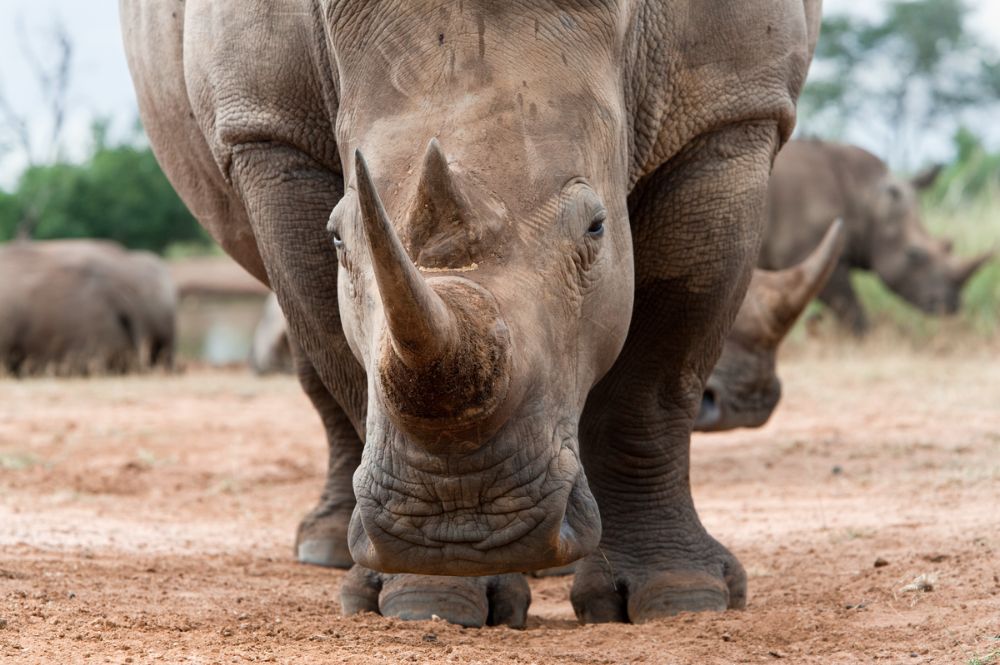In recent weeks, severe sentences have been given to four individuals found guilty of rhino poaching and associated crimes. In Mozambique, two people were sentenced to 27 and 24 years for their roles in illegally killing rhinos, financing terrorism and money laundering, among other crimes. In South Africa, two people were given 20-year sentences for poaching two black rhinos in the Great Fish River Nature Reserve.
The strong sentencing of prominent individuals operating within organised crime groups is a huge step forward in disrupting rhino horn trafficking networks operating in southern Africa.
Syndicate leader and accomplice sentenced in Mozambique

Major rhino poaching kingpin with an extensive network involved in rhino poaching activities in and around Kruger National Park, Simon Ernesto Valoi (known as ‘Navara’ due to his history of stealing and driving 4×4 sports utility vehicles such as the Nissan vehicle) was handed a 27-year sentence and his ‘right-hand-man’, Paulo Zukula, received a 24-year sentence. The convictions follow a co-ordinated intelligence operation resulting in the pair’s arrest in July 2022 by SERNIC, Mozambique’s national investigation authority, with support from the Wildlife Justice Commission. At the time of their arrest, they were found with four rhino horns weighing 2.9 kg.
Valoi and Zukula are known to have targeted rhino populations in Kruger National Park, co-ordinating with a number of gangs to illegally kill rhinos and traffic their horns through key smuggling routes. However, the illegal wildlife trade is known to operate within a larger web of organised crime: this case was no different. Valoi and Zukula were convicted of a series crimes including “financing terrorism, poaching, the sale of protected species, money laundering, the use of banned weapons, the use of forged documents, the sale and purchase of illegal guns and vehicles and criminal conspiracy”.
The convictions serve as a reminder that rhino poaching is a form of transnational organised crime, connected to a range of serious offences involving illicit money, weapons and other products and the critical need for strong legal action to protect endangered species.
Two men handed 20-year sentences for poaching black rhinos
The Makhanda High Court in South Africa sentenced two men to 20 years (each) in prison for their roles in illegally killing two black rhinos in Great Fish River Nature Reserve in the Eastern Cape. The individuals, who were caught with hunting rifles, ammunition, and other poaching equipment in July 2023, are understood to be part of a larger syndicate working to kill rhinos and traffic their horns.
The impact of strong sentences
Such severe punishments demonstrate the commitment of authorities to tackling wildlife crimes – we commend Mozambique and South Africa’s commitment to holding those responsible for serious crimes, including rhino poaching, to account.
The impact of these sentences will be far-reaching. Not only will it help to dismantle wildlife trafficking syndicates at a local level, but in the long-term it will support the safety, wellbeing and stability of people living within these areas. Dismantling the organised crime networks involved in rhino poaching doesn’t just benefit rhinos and other wildlife; it helps to uphold the broader integrity and good governance of landscapes and communities alike.
Despite convictions such as these, rhinos remain under threat from people involved at all levels of organised crime. Alongside our partners, we’ll continue to support crucial efforts that tackle poaching on the ground and simultaneously dismantle networks from the top down, protecting rhino populations and the people working and living with them from further exploitation.








